In a world where young people face increasing challenges such as poverty, disease, and social instability, the African Jesuit AIDS Network (AJAN) is taking action through its transformative AJAN HIV and AIDS Prevention Program for the Youth (AHAPPY) Training of Trainers held at the Notre-Dame de la Route Novitiate in Cyangugu, from 24th to 28th February 2025.
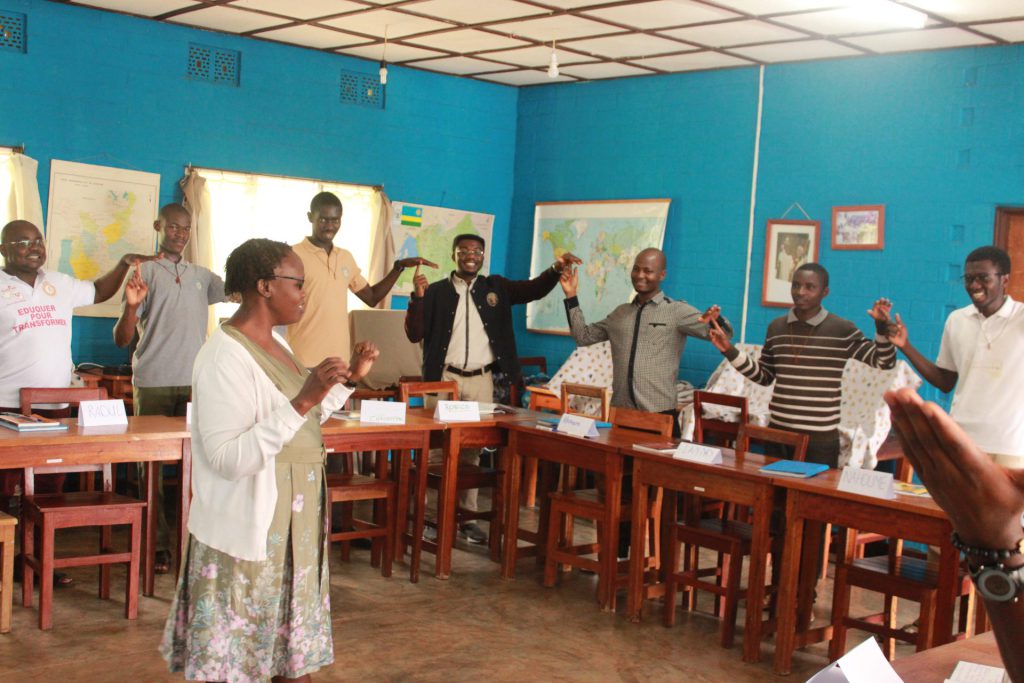
The 5-day training that was led by Ms. Pascalia Sergon, AJAN Capacity Building Officer together with Fr. Jean Charles Kubanabantu, SJ saw the 13 participants ( 1st and 2nd Year Novices) that attended the training gain additional knowledge on life skills, leadership training and self-awareness strategies to help them navigate their futures with confidence and purpose.
Inspired by Joseph Ki-Zerbo’s thought-provoking book Educate or Perish, the topics covered by the facilitators emphasized the need for holistic education beyond mere academic instruction. While knowledge transmission is essential, AJAN aligns itself with the Jesuits’ third Universal Apostolic Preference: “Walking with the youth towards a future filled with hope.” Through mentorship, dialogue, and leadership training, true education that involves personal development, critical thinking, and self-discovery. This approach is particularly crucial in Africa, where the youth remain the most affected by economic and social hardships.
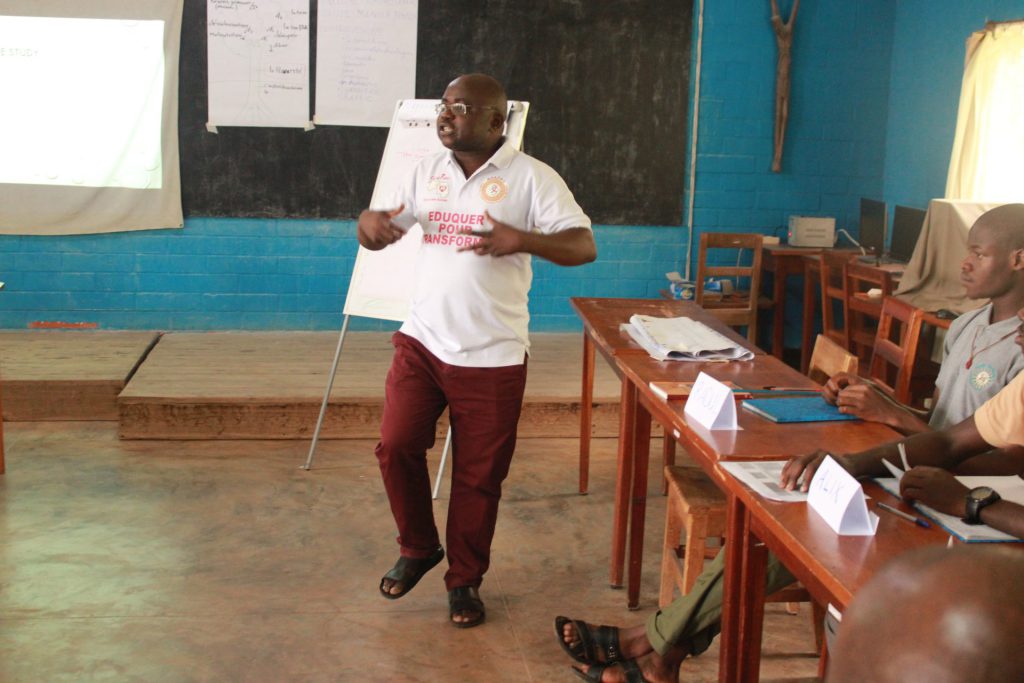
The training session was structured around four core themes:
- Self-Awareness and Personal Development Participants were encouraged to understand their identity, recognize their self-worth, and appreciate life as a divine gift. Developing a positive attitude and knowing one’s strengths and weaknesses were emphasized as essential steps toward personal growth.
- Understanding the World and Social Responsibility Young people were trained to critically assess their surroundings, cultivate gratitude, and contribute to a better society. A key focus was on preventing the spread of HIV/AIDS and other sexually transmitted infections (STIs) through responsible behavior, including abstinence, fidelity, and safe practices.
- The Dangers of Drug and Substance Abuse The session highlighted the harmful effects of drugs on individuals, families, and society. Participants learned about the different types of substances—hard drugs such as cocaine and cannabis, and soft drugs like alcohol and tramadol. They also explored the psychological and physiological impact of substance abuse, reinforcing the need for informed decision-making and self-discipline.
- Addressing Structural and Social Barriers The training shed light on the various factors that contribute to social challenges among young people. These included:
- Individual factors: Ignorance, alcohol abuse, and fear of HIV testing.
- Social factors: Stigma, forced marriages, and harmful cultural practices.
- Structural factors: Poverty, political instability, and negative media influences.
To counter these challenges, participants were encouraged to embrace: Quality education and life skills training, Strong friendships and positive social influences, Responsible decision-making, particularly regarding health and well-being. and Regular HIV testing as a means of protecting themselves and their future partners. The training also stressed the importance of HIV testing in making informed life decisions. Participants learned about the three crucial stages: pre-test counseling, testing, and post-test follow-up. Whether the results were positive or negative, the emphasis was on adopting a responsible and proactive approach to health.
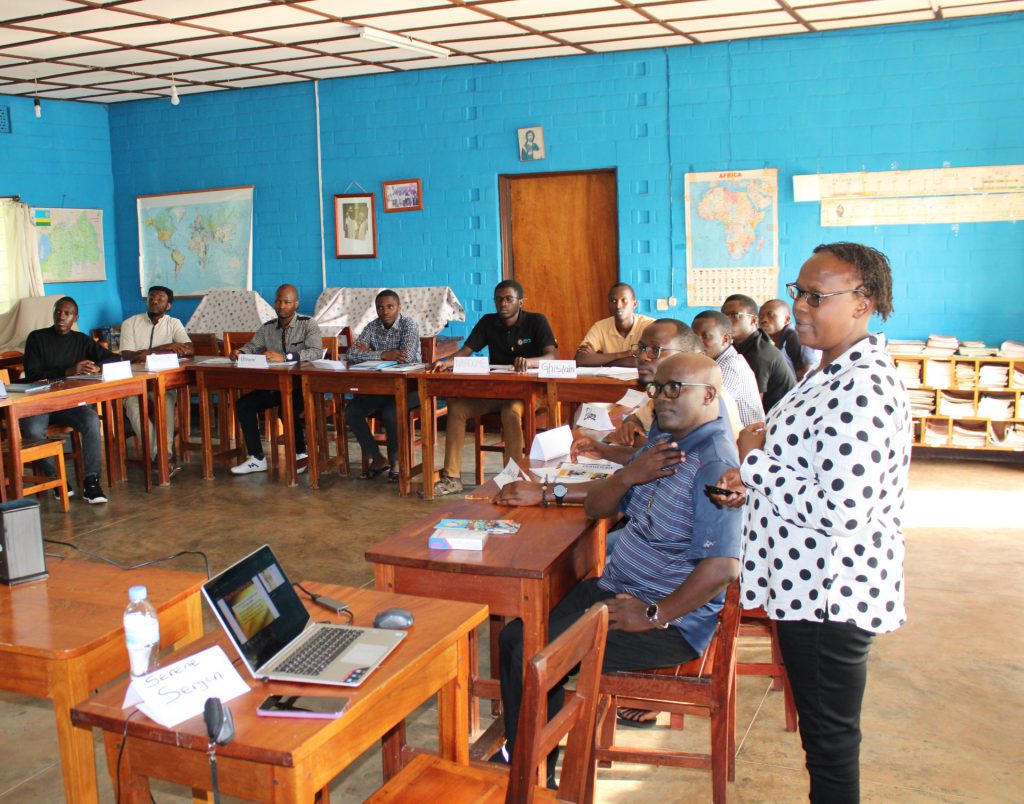
A significant part of the training focused on mentorship, leadership, Faith and Moral Convictions. Participants were introduced to the concept of mentorship that is defined by trust, responsibility, and the ability to listen actively. While at the same time they were encouraged to integrate spiritual and ethical values into their decision-making processes, ensuring that their personal development encompassed all aspects—physical, social, intellectual, emotional, and spiritual.
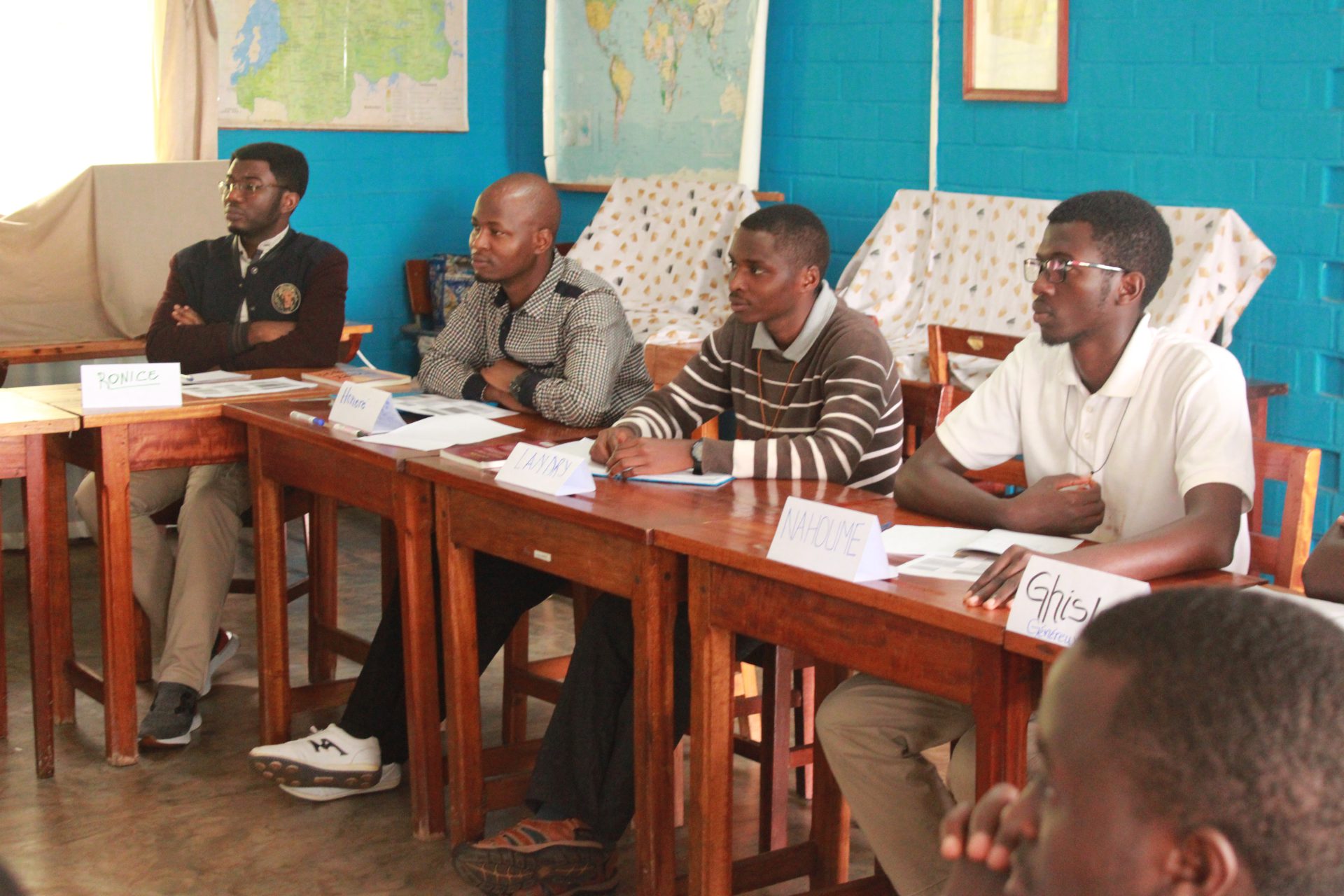
By the end of the session, many participants expressed a newfound sense of purpose. They realized that personal growth is a continuous journey requiring self-reflection, informed choices, and an openness to mentorship and leadership opportunities. Below are some of the feedback from some of the participants;
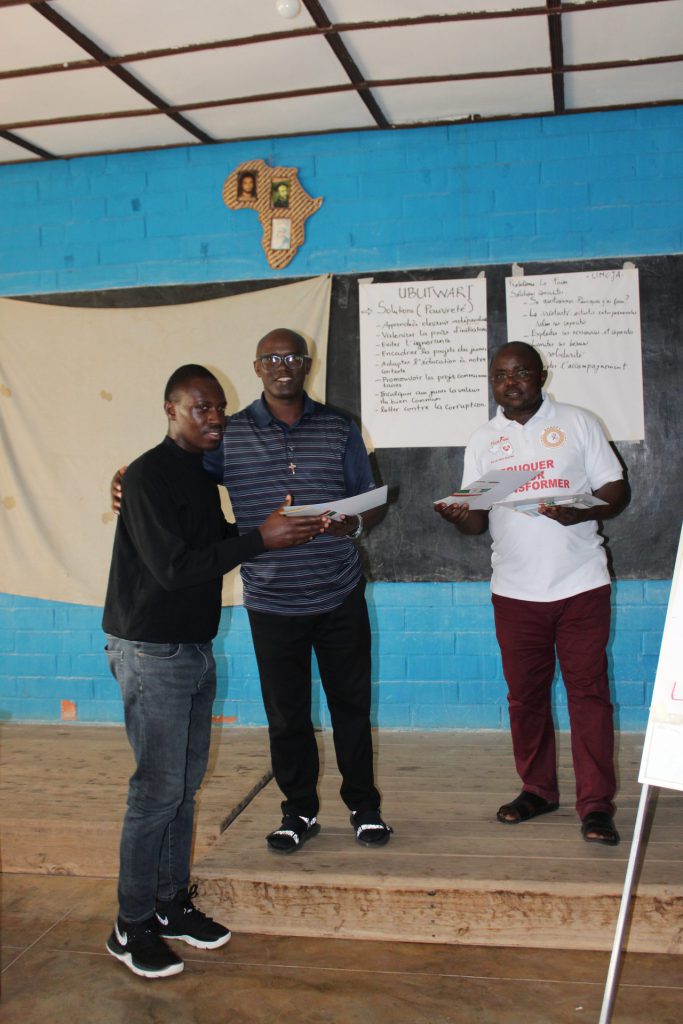
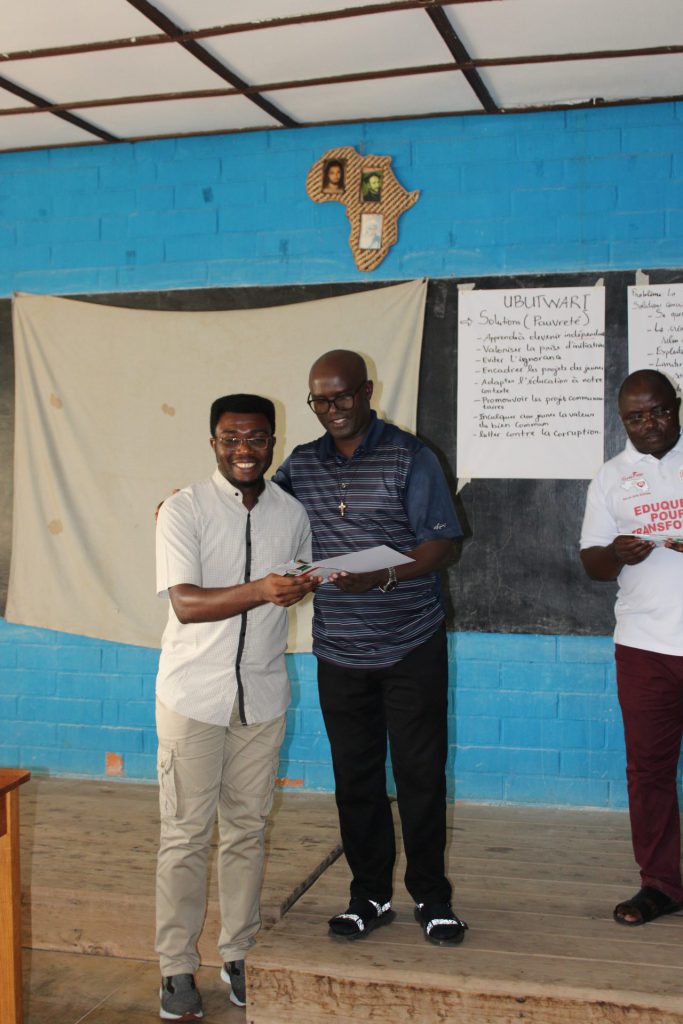
Fr. Benard Karerwa, the novice master in Cyangugu hands over the AHAPPY Certificate to some of the participants at the end of the 5-day AHAPPY ToT.
Landry SHIRIMBERIMANA, a Novice Jesuit from Burundi says,
“Personally, this session has been incredibly beneficial and important. I now have a comprehensive understanding of the African Jesuit AIDS Network (AJAN) as a Jesuit social initiative that responds to the third universal apostolic preference of the Society of Jesus—accompanying young people towards a hope-filled future.
Through this experience, I have also come to understand the AHAPPY Generation program as an essential part of the Jesuit mission within AJAN. This program continuously implements the third apostolic preference by dedicating itself to the integral formation of young people.
This knowledge will undoubtedly help me in my mission to save souls without neglecting the body. As Saint John of the Cross teaches, “while spiritual growth is paramount, neglecting the physical needs of the body can hinder spiritual progress.” Indeed, by helping the body, we also help the soul.
This session has prepared me to become a committed future missionary and a devoted Companion of Jesus—one who is ready to confront the challenges of today’s world and evangelize, even in the face of difficulties, especially in guiding the youth. However, I must first take responsibility for my own life, acknowledging the problems of our world, many of which we, as young people, have contributed to. Only by recognizing our role in these issues can we work towards meaningful solutions.
This experience has shaped me into a future apostle and a missionary devoted to the Ignatian motto: “For the greater glory of God.” With this formation, I am committed to ensuring that we save souls without neglecting the body.
With a heart full of gratitude, I extend my sincere thanks to all who have made this journey possible. May God bless you abundantly.”
You can also watch this and more testimonials from the training by clicking on the following link; https://youtu.be/mcqBNm4YPLA
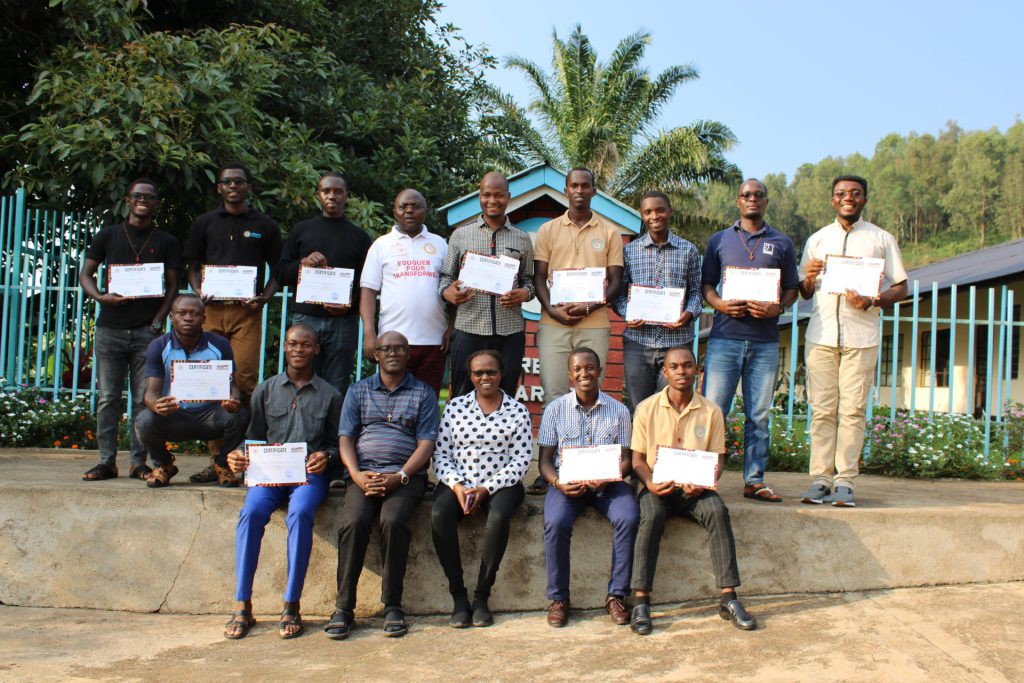
The training concluded with a challenge to participants: to embrace AJAN’s methodology and actively apply the lessons learned in their daily lives. AJAN’s envisions a generation of young people who are not only academically capable but also ethically grounded, socially responsible, and spiritually aware. One key message stood out: “Change begins with those who seek it.” The road to transformation is open to those willing to take the first step, and with AJAN’s guidance, young people now have the tools to shape a better future for themselves and their communities.
By, DAH Etienne,
Novice Jesuit, Notre-Dame de la Route Novitiate in Cyangugu.

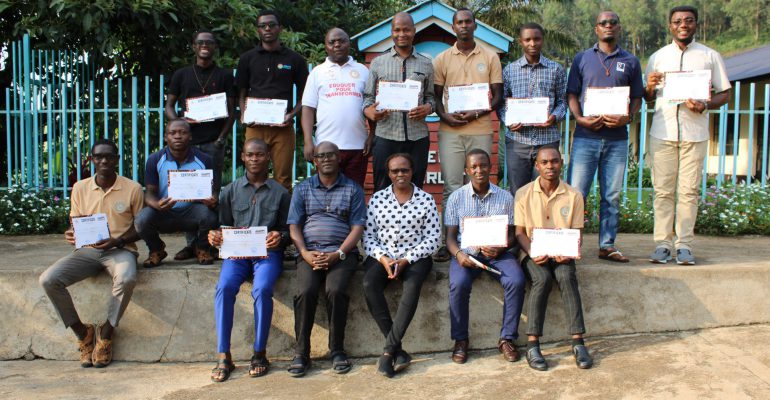
Comments are closed.